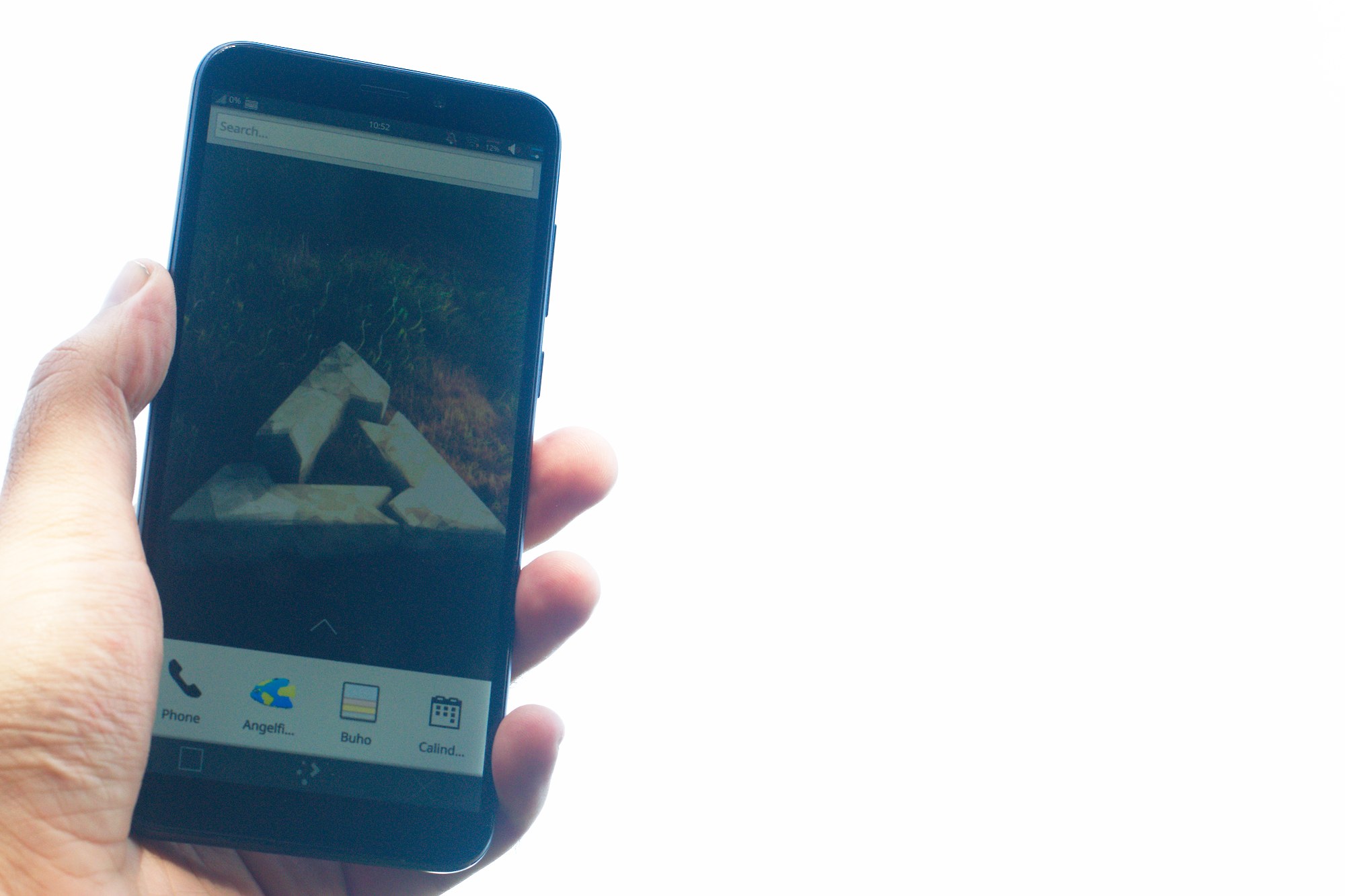I think Linux phones have huge potential going forward. Personally, I’ve noticed that my usage patterns haven’t really changed in at least a decade. I use a fairly small number of apps like calendar, email, chat, media player, etc. The way these apps work hasn’t really changed, and if I could get those working well on a Linux phone then I really wouldn’t miss Android one bit.
As a side note, it’s really depressing to see how hardware keeps getting faster, but software bloat negates all the gains. If we could have an ecosystem of open source apps that are optimized for performance, then we could have phones that last for many years without having to keep replacing them. Imagine if with every update your software kept getting faster instead of slower.
Yeah same, I don’t use my phone for too much, I think with a little more progress I could potentially move over to it for the most part. I do hope android compatibility can be improved though, it would be the biggest barrier of entry down the line. Also I definitely agree with you on updates, it’s frustrating that technology keeps improving and getting more efficient and the most of the popular proprietary software doesn’t really evolve and gets less efficient.
Yeah, having a decent Android compatibility layer would be amazing. Seems like there’s some promising work being done on that front already.
What’s that looking like? I’m aware of Anbox but IIRC that runs a full Android runtime and I’ve seen mixed reports of it working.
Personally I’ve been kicking around the idea of an API compatibility layer for Android, so an Android app could be built as a standard Java jar and run on top of OpenJDK. I’m not concerned with binary APK compatibility, but there are many apps on F-Droid that I would like to run on non-Android Linux, perhaps without the baggage of something like Anbox. I don’t know what it would entail, if there is any interest, or if it’s even possible though.
Yeah, I think all the efforts right now emulate the runtime. Shashlik is another one I’ve seen. I agree something more like WINE would be better. The main work is in creating an API compatibility layer the apps could use.
A change would be nice
I mean, what I want is a phone that I can own to the fullest extent possible. GNU/Linux is a plus, because I already use it on desktop and am familiar with it. Lack of Android apps is not much of a concern for me, although I have it on my todo list to learn how to develop replacements.
The PinePhone “does what I want it to do.” I can flash a new image very easily or boot from SD card if I feel the need to. It’s easy to get root and I have full access to my filesystem. It really is “like a computer in my pocket.” It needs polish but this is my ideal conception of a smart phone.
Android devices, despite also using Linux, present numerous hurdles to me that suggest that although I paid money to receive them, I don’t really own them. It feels like I have to go to ridiculous lengths just to get something that is as powerful as the OS I have on my PinePhone. Simply flashing LineageOS isn’t enough, I have to then patch Magisk onto the boot.img and reflash it (and apparently I have to do this every OS update as well!), then to enable apps to actually access the SD card I have to install a Magisk module, but of course that doesn’t actually do what I need to so I eventually stumble on this app on F-Droid that seems to work. Now I have a text editor that can access my SD card, something Mobian provides to me out of the box.
This suggests to me that I have a different conception of a “smart device” compared to most people. Truthfully, though, I don’t really have an issue with Android from a UI or usability perspective, I would not have a problem with an Android OS that didn’t have the restrictions Google places on it - but then we’d lose SafetyNet and proprietary apps would complain about root and we can’t have that…
Very nice post! I think some people are just in the middle of: need for privacy vs funcionality. They heard that Linux phones are a good alternative to Android and iOS, so they want it, while in reality they want an Android / iOS experience with more privacy. They’re not ready to sacrifice any convenience or learn to use different things.
Once you have your expectations in check, Linux phones are indeed amazing! And developing very fast, considering that only a few developers actually work on them.
I think the interest isn’t from the intended audience, but rather from those looking for ANY alternative to Google/Apple and have bene told by various sources that one of these “Linux phones” respects their privacy or doesn’t block apps based on politics.
I feel that middle points such as LineageOS or /e/os aren’t discussed in the same manner, and for various reasons arent looked at in the same light as a “Linux phone.”
Given the above I find it to be no surprise that many (the majority) of PinePhone buyers/fans/onlookers have no interest or skill to improve the device or service: they’re here because they’re fedup by some part of the current status quo and don’t want to wait for a more mature offering (which by the way would negate a lot of Martin’s initial complaints).
Speaking of, I’m assuming that something happened to set this post in motion, there’s only so much one Dev can take afterall. But I don’t have any answers, other than to point out that the devices keep selling out so people are putting their money where their mouth is - they (buyers) just cant back it up with continued support.
I’ve seen the Android rom/APk asks, and it puzzles me too. But then I remember that most are looking for some form of privacy, even if the data in the end still goes to the same place they’ll feel better that the “phone isn’t from Google” and don’t care if Linux was the focus of the device they’re interested in.
His features vs stability comments also fit this perspective imo, there is a “baseline” that a lot of buyers comer into the project expecting and would rather see it met than to have work be finished or have things done in a replicatable manner. I started to write more on this but on second thought feel that if upstream ability(?) was kept at the fore then having so many releases would be less of an issue.
Taken as a whole it’s a good post even if I don’t necessarily agree with the cut of its jibe, I suppose we (device owners) can only try to do better/help in what manner is able to us.
Side note: the Librem 5 vs PinePhone fight was inevitable, I agree that both need/use the other even if I have a hard dislike for Purisms marketing and word choice in some of their material.
Given the above I find it to be no surprise that many (the majority) of PinePhone buyers/fans/onlookers have no interest or skill to improve the device or service: they’re here because they’re fedup by some part of the current status quo and don’t want to wait for a more mature offering (which by the way would negate a lot of Martin’s initial complaints).
This is 100% where I am. I’m sick to death of everything I own trying to suck up personal data and then use it to manipulate me for profit. It’s like having a sociopathic lover who knows everything about you and is hell-bent on ruthlessly exploiting you. I will not stand for it; I demand control of my data and my hardware.
The mobile space is where this is the worst. I run a custom Android ROM, but as a “mere” superuser who’s not a professional coder, there’s only so much I can do in an environment that’s fundamentally structured against me. I fervently want open source mobile hardware to succeed, and I don’t have any relevant technical skills to contribute.
I don’t know what to do other than buy the hardware to show that there’s support for this. Do you have suggestions?
Get a used Android phone that supports Ubuntu Touch and donate your savings to the Ubports foundation.
Eidt: Buying a PinePhone does not help with the software issue described in the OP, as Pine64 does only minimal software development themselves.
Recommendation very much appreciated. It looks like a Fairphone running Ubuntu Touch could be exactly what I want.
I just got the Fairphone 3+ and the first impression is fantastic!
Putting lineage os (no google) on it took about 10 minutes, the built quality feels very solid, and it’s lighter than my old Samsung S9+ (which I’m about to sell).
After a day of light use the battery is at 86%.
it reminds me a lot of the Nexus 5 but naturally better and bigger screen.
Definitely would recommend it so far!
what’s the camera like on the Fairphone using lineageOS
I think it is the stock camera. The app isn’t overly fancy.
On the hardware side it seems decent. It’s 48mp. Not a photo geek, but it works fine for my purposes:
family pics, pics for reminders, etc
That’s what I’m planning to do. I wonder how long though it would take to learn how to contribute to source code and to develop apps for Ubuntu touch.
Just chiming in a bit late, the other recommendations of Ubuntu Touch and/or Fairphone + donating are great ideas.
I cant get a Fairphone as they don’t work well in the USA, and when the major carriers sunset their 2G/3G might not work at all - I’ve considered using one on WiFi only but don’t know how well that will work yet.
That’s also my reservation on buying another device for Ubuntu Touch as well, and VoLTE is device specific - the PinePhone having VoLTE solves that for me.
I’d also recommend to report bugs and the like actively if you have the time, providing good examples helps iron things out for other users and the maintainers.
Yes
I really like this post, and people like Martijn are incredible
Yes I love everything about Linux.
i think that different parts of open source can do mobile OSs better than linux. (i.e Graphine OS Calyx OS, and Linage OS) but linux phones could become good competetors in a few years time.(4-8 years imo)








